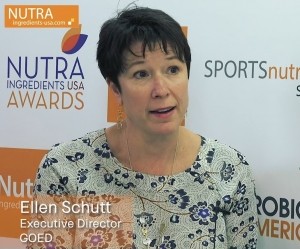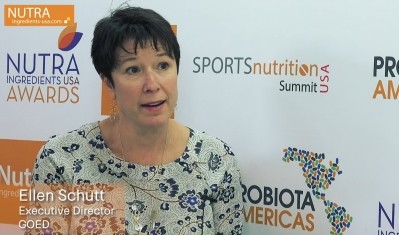Guest article
New health claims, new science, and steady sales: Why 2019 was a ‘solid’ year for omega-3s

In 2018 (the year for which most recent figures are available), the omega-3 market worldwide at the raw materials level was 111,210 metric tons, a 2.3% increase from 2017. The total market value was $US 1.38 billion, up 2.1% from 2017. The US remains the largest market for omega-3s, driven by its sizeable supplement market.
This year was marked by positive news in the form of a qualified health claim for omega-3s and more scientific and data analysis published on the benefits of EPA and DHA.
Qualified Health Claim Approved for Omega-3s
Five years after the original petition was filed, the US FDA in June awarded a qualified health claim for the connection between EPA and DHA omega-3s and reduction in blood pressure. While the claim includes qualifying language (see below), the Industry considered the decision a win from a regulatory perspective.
EPA and DHA Qualified Health Claim Language: “Consuming EPA and DHA combined may reduce blood pressure and reduce the risk of hypertension, a risk factor for CHD (coronary heart disease). However, FDA has concluded that the evidence is inconsistent and inconclusive. One serving of [name of the food or dietary supplement] provides [ ] gram(s) of EPA and DHA.”
The claim may be used on conventional foods or dietary supplements that contain at least 800 mg/serving of EPA+DHA. The high dosage is quite positive, highlighting the fact that higher dosages are needed for people with certain conditions or at certain life stages.
Additionally, as part of its review of GOED’s health claim petition, the FDA updated its safety review and increased the safe upper limit for dietary supplements using the claim from 3 grams/day to 5 grams/day.
In other regulatory news, there was a working group meeting on the topic of DRI’s in Canada last month. The event, entitled “How to Develop Dietary Reference Intakes Based on Chronic Disease Endpoints: The Omega-3’s EPA & DHA, A Case Study Workshop,” was designed to examine what is needed to establish Dietary Reference Intakes (DRI) based on chronic disease risk reduction and analyze the strength of the omega-3 scientific evidence. While no formal next steps have been determined, GOED believes a similar workshop in the US would help move the DRI process forward.
Amarin: A Label Claim Expansion?
The industry continued to watch the activities of Amarin, whose Vascepa pharmaceutical omega-3 product was the subject of the highly successful REDUCE-IT trial published late in 2018.
Company revenues grew significantly this year and as we close 2019, we await the final recommendation by the US FDA to expand the labeling indication for Vascepa.
This was the focus of an Advisory Committee meeting held in November, where the committee voted 16-0 to expand the population approved to receive Vascepa by prescription and a final determination is expected by the end of the year.
In other Vascepa news, earlier this month, the US Supreme Court denied Amarin’s appeal on a 2017 decision by the International Trade Commission (ITC) to refuse to review a case brought by Amarin regarding the legality of high concentrate omega-3 dietary supplement products in the US.
Science, Public Health Research Continues to Support Omega-3 Usage
On the science front, two strong positive meta-analyses were published in the second half of 2019, analyzing the results of recent trials on omega-3s and cardiovascular outcomes. GOED has submitted a more comprehensive meta-analysis on this topic that we expect to publish in early 2020.
There were also several reports published on how improving nutrition, including consumption of omega-3s, could impact public health positively. One, published in the European Journal of Epidemiology, looked at the Global Burden of Disease report and analyzed the prevalence of cardiovascular disease throughout Europe, determining that diets low in seafood omega-3s contributed to more than 10% of cardiovascular disease-related deaths.
A similar study done by the Institute for Health Metrics and Evaluation in the US listed dietary risk factors ranked by number of deaths and attributed “low omega-3s” to close to 1.5 million deaths.
Given the importance of EPA and DHA for public health, GOED continues to work on educating consumers, relaunching its AlwaysOmega3s.com consumer website with updated information and a more mobile-friendly format.
Also just this month, GOED launched an Omega-3 Insider consumer community, designed to educate omega-3 advocates about the latest omega-3 news and science and offer special discounts from GOED members. Interested consumers can sign up here: https://alwaysomega3s.com/become-omega-3-insider
Looking ahead, the next edition of the US Dietary Guidelines will be published in 2020 and is unique this year in its inclusion of omega-3 supplements among the list of supplements to be considered. Also, of interest to omega-3s is a systematic review that is part of the guideline development process and looks at developmental guidelines including neurocognitive development.
GOED has been submitting comments and participating in the process as necessary throughout the year. Most recently, we recommended that the Dietary Guidelines Advisory Committee include the outcomes of “pre-term and early pre-term birth” in the systematic review looking at the relationship between omega-3 fatty acids from supplements and/or fortified foods consumed before and during pregnancy.
GOED Exchange 2020
The GOED Exchange 2020 will take place February 4-6 in Barcelona, Spain.
The premier omega-3 conference promises to bring together thought leaders and industry executives to network, learn and discuss issues of importance in the space. Please click HERE to see who’s already attending, and HERE to register.
















